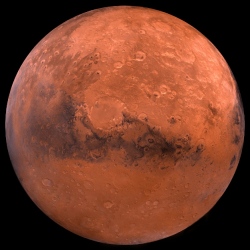
The discovery of these large ice pockets leads to even greater questions; what does this mean for colonizing Mars? Does this even affect colonization? What could we use the water for? With this discovery, it is probable that NASA will land our first manned mission near, or on, the places on Mars that have these ice deposits.
We would have to pack up our astronauts with drills so they can drill down into where the ice deposits are to get to that resource. That would make living long term on Mars easier since the water is quite literally right there, and it would mean that NASA and other agencies wouldn’t have to pack an insane amount of water for our astronauts.
Before we can rely on the ice on Mars to sustain human life, scientists need to test it to learn what it consists of. For all we know the ice is poisonous or dangerous to humans (although that is doubtful), so we need to test it. To test it we will need some kind of rover with a drill long enough to examine the ice, which is where the ExoMars Rover will come in to play.
This rover has already been in the works and has been scheduled for launch in 2020, but now it can really aid us by going to the places we know ice is to test it. This rover has a drill capable of drilling down 2 meters, which happens to coincide perfectly with the depth of the ice deposits. This rover will have the equipment on it to be able to test the ice deposits over Mars to determine the properties and makeup of the ice. Not only will this rover learn for sure if the ice will be good for human use, it will also give us insight into Mars’ atmosphere and history that much sooner.
The ExoMars Rover will be launched in 2020 by the European Space Agency (ESA for short), and its main mission is to actually search for any signs of life on Mars. With it having the capabilities of reading the Martian life, it may very well be the rover to create human life on Mars. Or at least provide the opportunity for life on Mars. We eagerly await to hear the results from the ice, but one this is for sure; our plans for Mars changed drastically with this one discovery and the future is very exciting and bright for Mars colonization.
